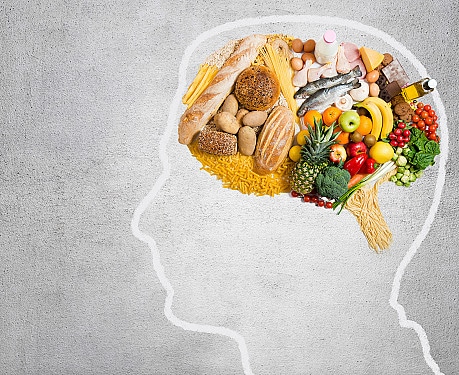Eating a balanced and nutritious diet is essential for maintaining good physical health, but did you know that it can also have a significant impact on your mental well-being? Research has shown that the food we eat can affect our mood, cognitive function, and risk for mental health conditions such as depression and anxiety. In this article, we will explore the connection between diet and mental health, and discuss how making certain dietary changes can improve your overall well-being.
The Connection between Diet and Mental Health
Nutrition and the Brain
The brain is the most complex organ in the body, and it requires a wide range of nutrients to function properly. These include vitamins, minerals, amino acids, and fatty acids. A diet that is lacking in these essential nutrients can result in brain dysfunction, which can manifest as symptoms of depression, anxiety, and other mental health conditions.
Inflammation and Mental Health
Inflammation is a natural response of the body’s immune system to injury or infection. However, chronic inflammation has been linked to an increased risk of mental health conditions such as depression and anxiety. Diets high in processed foods, sugar, and saturated fats have been shown to promote inflammation in the body. Eating a diet that is rich in anti-inflammatory foods, such as fruits, vegetables, and fish, can help to reduce inflammation and improve mental health.
Gut Health and Mental Health
The gut is home to trillions of microorganisms, collectively known as the gut microbiome. Recent research has shown that the gut microbiome plays an important role in mental health. Studies have found that people with depression and anxiety often have an imbalance in their gut microbiome. Eating a diet that is high in fiber and fermented foods, such as yogurt and kefir, can help to promote a healthy gut microbiome and improve mental health.
Dietary Changes for Improved Mental Health
Eat a Balanced Diet
Eating a balanced diet that is rich in fruits, vegetables, whole grains, and lean protein can provide the essential nutrients that the brain needs to function properly. It can also help to reduce inflammation and promote a healthy gut microbiome.
Limit Processed Foods
Processed foods are often high in sugar, salt, and unhealthy fats, which can promote inflammation and negatively impact mental health. Limiting your intake of processed foods and instead opting for whole, unprocessed foods can improve your overall well-being.
Include Omega-3 Fatty Acids
Omega-3 fatty acids, found in fish such as salmon and tuna, have anti-inflammatory properties and have been shown to improve symptoms of depression and anxiety. Aim to include at least two servings of fish in your diet per week.
Increase Fiber and Fermented Foods
Fiber and fermented foods can help to promote a healthy gut microbiome and improve mental health. Increase your intake of fruits, vegetables, and fermented foods such as yogurt and kefir.
Conclusion
The food we eat can have a significant impact on our mental well-being. A diet that is lacking in essential nutrients, high in processed foods, and low in anti-inflammatory foods can increase the risk of mental health conditions such as depression and anxiety. On the other hand, a balanced diet that includes a variety of fruits, vegetables, whole grains, lean protein, omega-3 fatty acids, and fermented foods can improve mental health and overall well-being. If you’re struggling with mental health issues, it’s worth discussing your diet with a mental health professional or a registered dietitian to see if making certain dietary changes can improve your symptoms.
